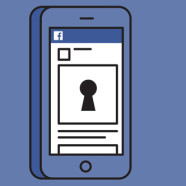
Nobody ever said connecting the world would be easy.
Despite aggressive efforts to promote universal connectivity in India, Facebook just struck out. India’s telecom regulator has blocked the company’s Free Basics service as part of a ruling that supports net neutrality. The decision follows nearly a year of escalating conflict between Facebook and the country’s net neutrality activists, who argue Free Basics violates neutrality by favoring some services over others. It also undermines founder Mark Zuckerberg’s larger Internet.org efforts to bring the entire world online.
Still, it is not the end for Zuck’s grand plan. Although India remains an essential market, it’s not the only place where Facebook offers Free Basics, which provides access to a host of Internet services like Wikipedia, the BBC, health sites and weather reports, and, of course, Facebook. The services are lightweight versions of the originals that load quickly and perform well on less robust 2G and 3G networks. It’s available in 36 countries, and Facebook claims it has brought the Internet to more than 19 million people who wouldn’t otherwise have been able to afford access.
Today’s ruling follows an intense period of public discussion after Indian regulators released a whitepaper detailing data pricing differentials in December, and invited a public response. During the past two months, net neutrality activists in India registered their opinions while Facebook sunk resources into online polls and offline ad campaigns to sway public opinion. The Telecom Regulatory Authority of India ultimately said in its ruling that no service provided can “offer or charge discriminatory tariffs for data services on the basis of content.” In effect, regulators are banning “zero-rating,” the practice of exempting some Internet-usage from the data cap that covers other services. Regulators say that by working with telecom companies to make some services free, and not others, Facebook’s Free Basics unfairly helps some Internet services while disadvantaging others.
Troubled From the Start
Facebook began rolling out its app, which at the time it called Internet.org, in India last February in a partnership with various wireless carriers and other organizations. In April, shortly after the app launched in India, several publishers withdrew from the program, saying it violated the principles of net neutrality because Internet providers were favoring some services over others. Net neutrality, they argued, dictates that all online services be treated equally. By leaving out some apps, they argued, Facebook put some services at a competitive disadvantage.
Zuckerberg was upset. In a Facebook post, he said Facebook had no intention of blocking or throttling the Internet, which is how he defined net neutrality, but felt that building the app was necessary to get everyone online quickly. “These two principles—universal connectivity and net neutrality—can and must coexist,” he wrote. He said the debate itself was unfair because the people who stood to benefit most from free Internet service were not online to advocate for it.
In May, Facebook opened its developer platform so anyone could launch a service within the free app. In a video published at the time, Zuckerberg also argued for a “reasonable” definition of net neutrality. “It’s not an equal Internet if the majority of people can’t participate,” he said. After listing the non-Facebook services people could use, he concluded with a call to action, asking, “Are we a community that values people and improving people’s lives above all else? Or are we a community that puts the intellectual purity of technology above people’s needs?”
His speech only served to fuel critics. In mid-May, digital rights groups from 31 countries signed an open letter to Zuckerberg, saying Internet.org “violates the principles of net neutrality, threatening freedom of expression, equality of opportunity, security, privacy and innovation.”
Trying to Reboot
Facebook responded by rebranding its effort as Free Basics so it might sound less like the app intended to displace the entire Internet. Facebook also improved app security. Zuckerberg stepped up his efforts to defend the app. In September, he hosted prime minister Narendra Modi in Menlo Park. The following month, he returned to India, where he held a town hall meeting at the Indian Institute of Technology in Delhi. At the event, he said a million people were using the app in India, and it had brought 15 million people online for the first time. That was Facebook’s version of success.
Then, in December, Indian regulators issued a temporary ban on the service. Zuckerberg penned an op-ed for an Indian newspaper, once again making his case for why, in a country where only 19 percent of the population is online, it’s more important to get everyone online quickly than it is to quibble about whether that process favors some Internet services over others. “This isn’t about Facebook’s commercial interests—there aren’t even any ads in the version of Facebook in Free Basics,” he wrote. “If people lose access to free basic services, they will simply lose access to the opportunities offered by the Internet today.”
With today’s ruling, it’s clear his opinion did not sway the Telecom Regulatory Authority of India.
Meanwhile, the battle over net neutrality also is playing out in the US, where regulators are taking a less aggressive approach toward zero-rating. As WIRED’s Klint Finley wrote recently, when Verizon launched the video service Go90, it decided not to ding Verizon customers for streaming its videos. But Netflix and YouTube videos still count against your data cap. A number of big telecoms are doing this. T-Mobile, Sprint and AT&T are experimenting with the idea, and the Federal Communications Commission has yet to attempt regulating it.
Facebook is not giving up on its efforts to connect the unconnected in India. Although the company is disappointed by today’s ruling, it insists, “We will continue our efforts to eliminate barriers and give the unconnected an easier path to the Internet and the opportunities it brings.”
